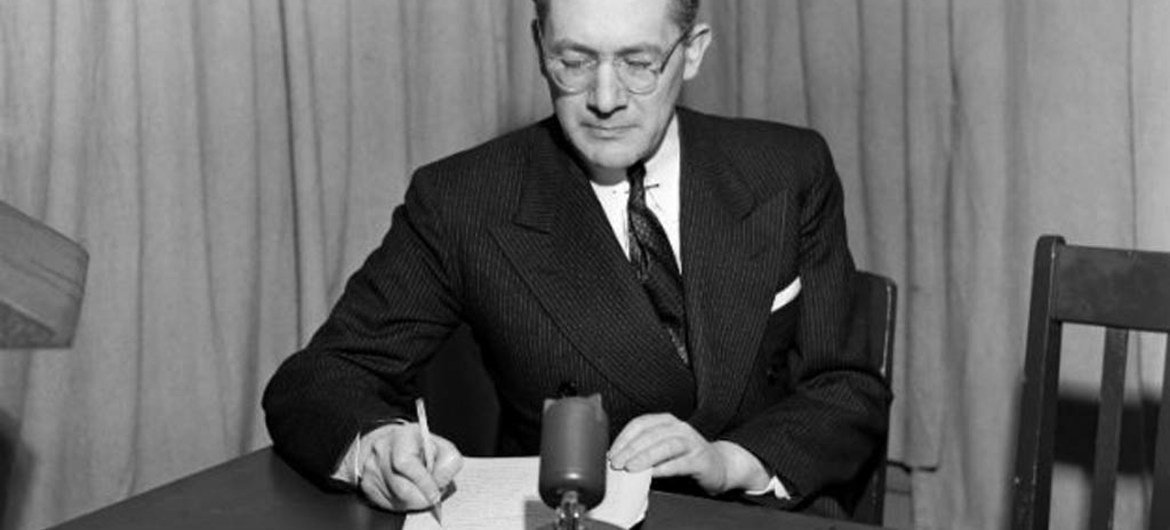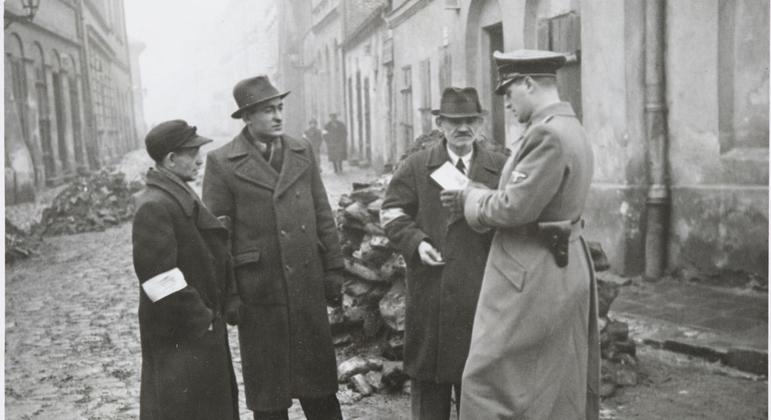On the eve of International Day of Commemoration and Dignity of the Victims of the Crime of Genocide and of the Prevention of this Crime, 9 December, we looked at the origin of the word. Mr. Lemkin developed the term partly in response to the Nazi policies of systematic murder of Jewish people during the Holocaust, but also in response to previous instances in history of targeted actions aimed at the destruction of particular groups of people.
Later on, he led the campaign to have genocide recognized and codified as an international crime. First recognized as a crime under international law by the UN General Assembly in 1946, genocide was codified as an independent crime in the 1948 Convention on the Prevention and Punishment of the Crime of Genocide.
Listen to UN Radio’s interview with Mr. Lemkin in 1947 here and the UN’s 1958 Citizen of the World episode on his life here, part of our #ThrowbackThursday series showcasing epic moments across the UN’s past, cultivated from the UN Audiovisual Library’s 49,400 hours of video and 18,000 hours of audio recordings.
Catch up on our series here, and watch episodes from UN Video’s Stories from the UN Archive playlist here. Join us next Thursday for another dive into history.

Raphäel Lemkin. (file)



